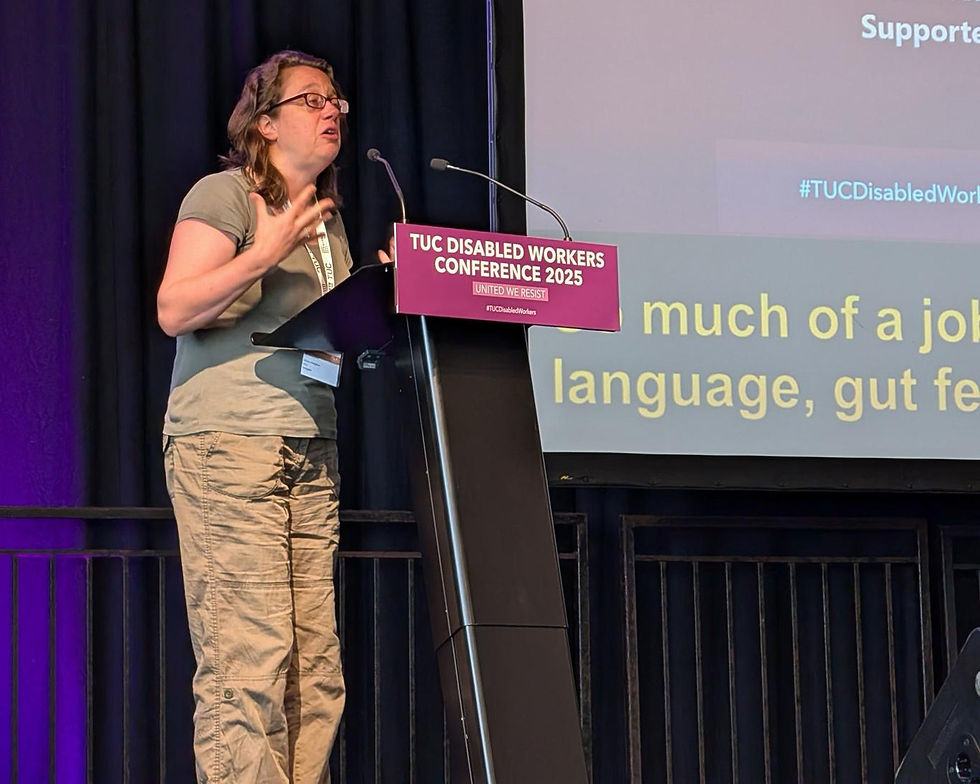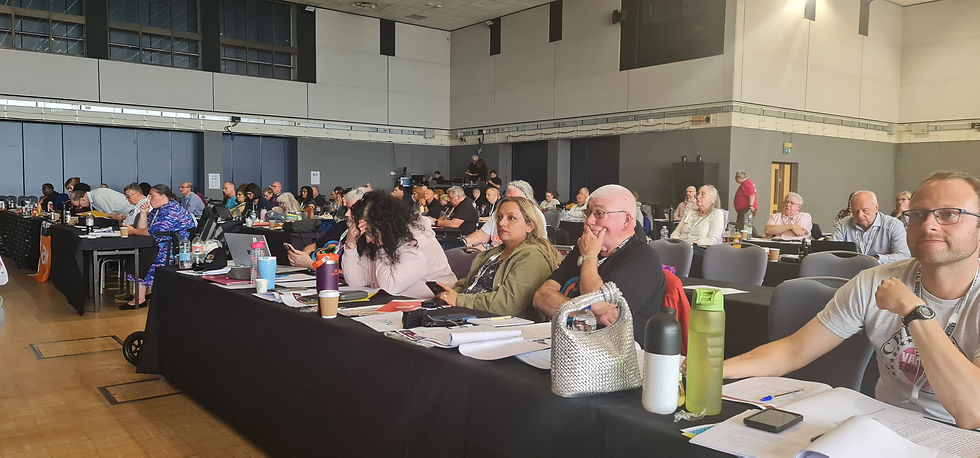Neurodiversity the workplace and inclusive recruitment practices
- kevinndaws
- Jun 20, 2025
- 4 min read
Did you know that currently 1 in 7 people in the UK are neurodivergent?
When we talk about neuro diversity and someone describing themselves as neurodivergent, what does that mean?
Neurodiversity is short for neurological diversity. It refers to the fact that our species is made up of individuals whose brains are ‘wired’ or structured in different ways.

Neurodivergence means having a neurology that differs significantly from what could be described as typical neurology.
It is an umbrella term for a set of different skills profiles including dyslexia, dyspraxia, autism, Attention Deficit Hyperactive Disorders (ADHD), Tourette syndrome and other conditions. The neurodiversity approach asserts that no one type of mind or brain is ‘right’ or ‘wrong’ .
Neurodivergent workers are a vital part of the workforce and the fact that they have different viewpoints and mindsets is hugely beneficial. Sadly, however, neurodivergent people often face a wide range of barriers within work and when seeking employment.
Neurodivergent workers can face barriers in securing employment with the interview stage of recruitment processes often disadvantaging them.
Disadvantages arise when employers use traditional interview
formats, marking down candidates for lack of eye contact, asking
indirect, vague and abstract questions or engaging in group tasks
and role play to assess candidates.
My UCU colleague Alison Gaughan spoke in the debate on Neurodiversity at the TUC Disabled Workers Conference and she spoke about her personal experience. This is what she said:
I’m autistic and probably have ADHD too. Job interviews are my worst nightmare! Just thinking about it immediately transports me back to my GCSE French oral, where I couldn’t remember a single word of French.
I realised why this was when I saw a comment on Facebook, it said “Job interviews are basically a test of how neurotypical you are.” That was a lightbulb moment, and it’s true. So much of an interview is about social rules, body language, gut feelings and vague questions - all things that are totally alien to me. It might as well be in French. And you can’t make reasonable adjustments for the panel’s subconscious bias.

I particularly appreciate the reference in the motion to the Disability Confident Employer scheme. I know from experience just how easy it is for an employer to wriggle out of those responsibilities. That was the time I failed to get shortlisted for my own job.
We should also consider the barriers for neurodivergent people who want to move from casual, zero hours or temporary employment to a permanent contract, which often involves going through a full recruitment process. This contributes to the disability pay gap.
One further issue that doesn’t get mentioned is the effect of non-inclusive recruitment practices on mental health. Neurodivergent people are likely to have suffered trauma and to be sensitive to rejection. Repeated failure to “pass the test” of interviews may lead to depression and loss of self-esteem and ultimately result in people giving up on looking for employment.
Recruitment practices need to change.
Let me reinforce what Alison said with a few facts:
75% of dyslexic people believe recruitment processes place them at a disadvantage.
Only 21.7% of autistic people are in employment within the UK.
72% of UK employers do not include neurodiversity in their diversity policies.
That traditional interview formats have contributed to the
‘autism employment gap’ as highlighted by the ONS (Office for National Statistics) in 2020.
The reality is that many neurodivergent workers face barriers to accessing reasonable adjustments, understanding their rights, and achieving equitable
treatment in the workplace. There is limited awareness and training for managers and colleagues about neurodivergence, leading to misunderstandings and discrimination. Research highlights inconsistent support systems, accommodations, and neurodivergence awareness.

Accessing Reasonable Adjustments is a big issue for disabled workers. Even where the disabled worker has been assessed and the need for reasonable adjustments has been identified the employer may choose not to provide them. The big issue is that there is no effective enforcement mechanism to compel an employer to provide reasonable adjustments in a timely manner.
In her speech Alison said that “Job interviews are basically a test of how neurotypical you are.”
So what can be done to change the recruitment practices of employers?
Here are a few of the suggestions and ideas that were supported at the TUC Disabled Workers Conference:
Promote the recently piloted Neurodiversity Employers Index (NDEI) with employers – encouraging them to measure themselves against best practice, highlight areas of strength and areas for improvement.
mandatory neurodivergence training for all managers and staff
robust mechanisms for neurodivergent workers to request and access reasonable adjustments in a timely and supportive manner
the introduction of neurodiversity advocates or champions by every employer to support neurodivergent staff;
a workforce disability audit to disaggregate types of disability, enabling improved advocacy for neurodivergent workers.
During the debate we also called on the TUC to:
Raise concerns with traditional hiring practices highlighting those that disadvantage neurodiverse applicants, by researching and publishing information on inclusive recruitment practices which it should share with the TUC's affiliated trade unions as well as with employers.
Lobby the government to improve the Disability Confident scheme (DC) - increasing the rigour of accountability and developmental work needed to achieve higher DC levels, increasing the frequency of DC assessments, and building in strong links to the NDEI - so that neurodivergent jobseekers can seek out Disability Confident organisations knowing they will offer support.
One interesting fact about the Disability Confident scheme is that 1 in 3 Disability Confident Employers Do Not actually employ any disabled people. This was exposed by an article published by the Disability News Service which you can read here
The ultimate challenge is to reframe the narrative around neurodivergent workers, moving beyond a focus on barriers to celebrating the unique strengths, skills, and perspectives they bring to the workplace. This should include promoting best practices in recruitment and employment that harness the talents of neurodivergent individuals.
Ultimately employers need to focus on identifying whether candidates have the specific skills required for the role and utilise inclusive recruitment practices to do so. Job interviews should not be a test of how neurotypical you are.
We've got to see people's talents first rather than the disability
Resources




Comments